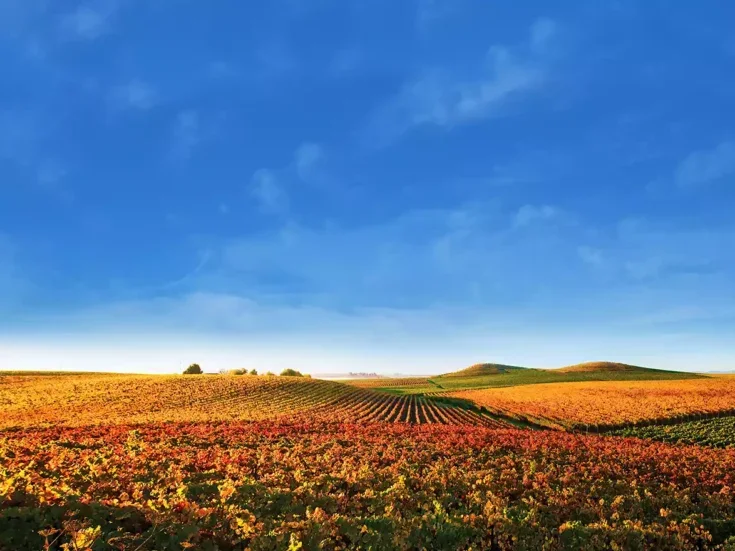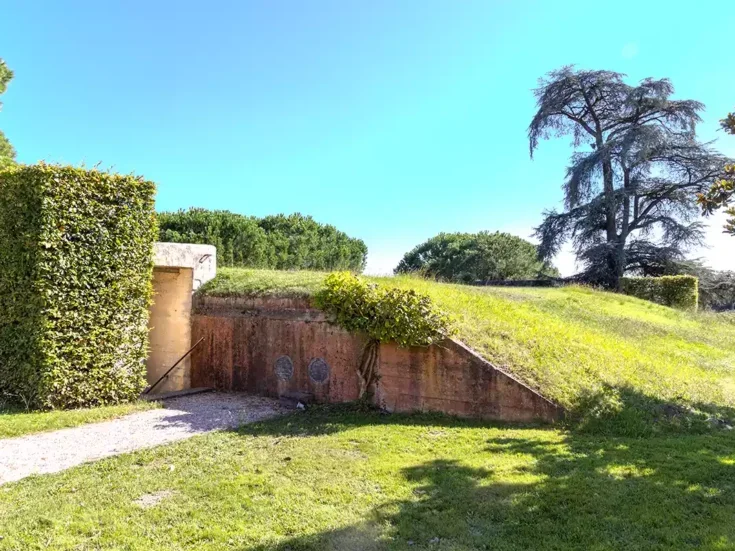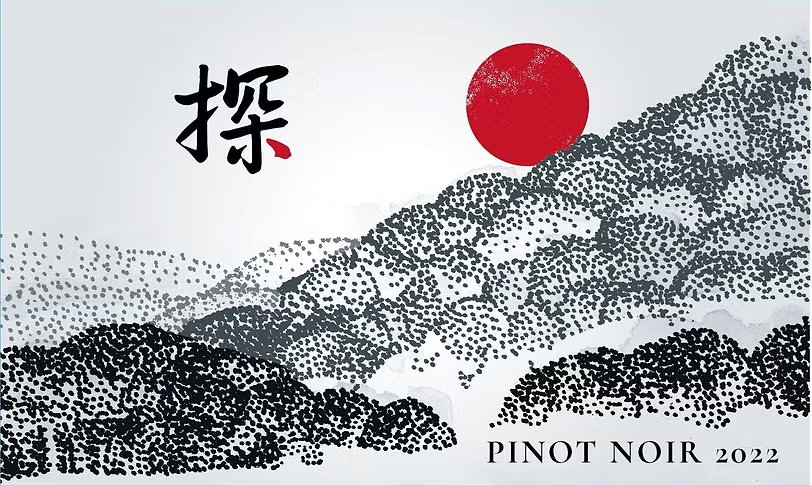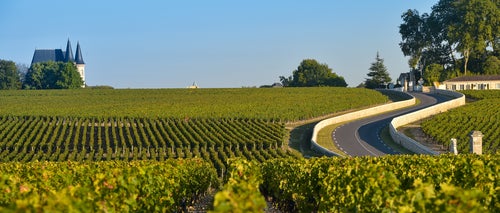
In the first of five pieces marking the release of the Bordeaux 2024 vintage, Jeannie Cho Lee MW asks if a crop of elegant, fresh, low-alcohol wines could help the region reset its image.
Bordeaux is clearly at a crossroads. One path could enshrine its image as a region filled with overpriced wine sold through an archaic distribution system that is not on trend among millennials, or even among baby boomers who are spending less and drinking less in their retirement. Another path could afford an opportunity for Bordeaux to alter its image by providing well-priced, honest, well-crafted wines that have heritage, balance, and elegance. The coming weeks—as prices are released and the market responds—will determine which path is taken by the collective châteaux selling through the place de Bordeaux.
It will not be easy for the châteaux, which are starting to release their prices. The first hurdle is getting over the negative view of the vintage. When I spoke with several importers in Asia last month, Bordeaux 2024 was already being written off. “No one asks for Bordeaux wines anymore and no one will buy this vintage… I heard the weather was terrible and there is plenty of stock of older vintages,” the managing director of a major Hong Kong importer confided to me. Similar sentiments were shared with me by importers and wine professionals based in Singapore, Seoul, and Shanghai.
A negative perception of the 2024 vintage would be justified if based only on the climatic reports and data about the growing season. Compared with the past two decades, with great vintages aplenty, 2024 is correctly framed as “challenging.” The winter was the wettest since 2000, recording 52% more rainfall during the growing season than the ten-year average. Spring brought persistent rain and mild temperatures, creating perfect conditions for downy mildew, which struck early and relentlessly. Organic and biodynamic estates were particularly vulnerable, forced to rely on copper-sulfur sprays that were frequently washed away by the rain, necessitating repeated treatments. Many estates documented a record number in 2024, some making more than 20 treatments.
The damp conditions led to widespread coulure and millerandage. Yields were already hit hard at this stage, with poor fruit set, uneven ripening, and persistent disease pressure. Reprieve finally arrived mid-July and August, which were warm and quite dry. September also enjoyed warm temperatures and had higher averages than vintages like 2010, 2013, or 2021. But just as vignerons were getting hopeful about the vintage, the downpours began again at the end of August and continued throughout September, breaking rainfall records as more than 4.7 inches (120mm) fell within four weeks. The result was historically low yields—the average across Bordeaux was 35hl/ha, the smallest crop since 1991—with some properties reporting as little as 10hl/ha.
Bordeaux 2024: Out of time?
The second hurdle in this vintage is the market situation and timing. Many cities have too much stock of Bordeaux as warehouses are full of great recent vintages—2018, 2019, and 2020, for example—and there is simply no room to store wines from a difficult vintage that may not sell. It became apparent to me when I was organizing Bordeaux wine events in Hong Kong and Seoul that all recent vintages of even sought-after châteaux were plentiful and competitively priced by importers who were only too happy to clear their stock. My fellow MWs in London and New York confirm similar situations in their respective cities.
The third hurdle is the tenuous economic and political environment internationally, which could further destabilize the global wine trade. While we have been living with pockets of conflict and instability, the Trump administration’s erratic policies toward tariffs have dampened trading, and if high tariffs materialize, they may stall trade altogether. Reluctantly, we are required to “watch this space” as the experienced media showman-turned-politician continues to write and rewrite headlines.
Amid these inauspicious circumstances, the 2024 Bordeaux vintage is being discussed in the region itself in whispers and with shrugs. “We don’t know what will happen,” was the refrain I heard among wine growers this month. Among the releases thus far, Château Batailley and Château Pontet-Canet, released respectively at 7% and 9% below 2023 prices (according to Liv-ex), have received lukewarm responses. Connoisseur Fine Wine in Hong Kong, which celebrates 30 years of selling Bordeaux en primeur, does not recommend buying Pontet-Canet: “[It is] a vibrant wine for all classic Pauillac lovers. We believe, however, that the price has not been reduced enough for this year.”
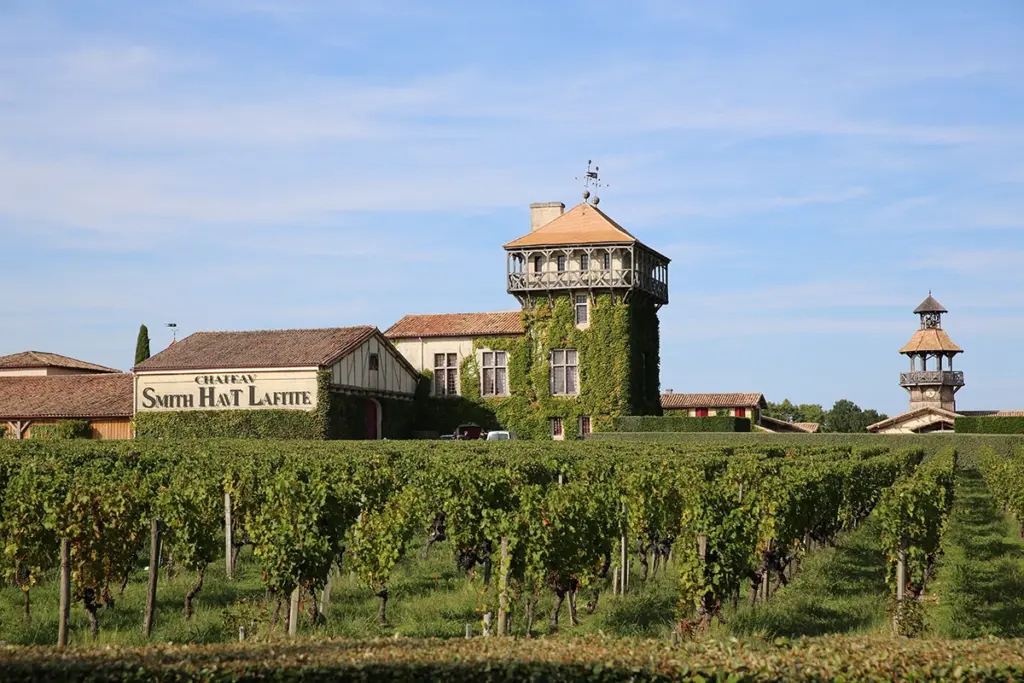
Hope and opportunity
Despite the challenging situation, I believe that there is still hope and opportunity for Bordeaux. Part of the answer can be found in the glass. After tasting more than 500 wines from the 2024 vintage, I was delighted to have gone back in time, toward an era before high-alcohol, oaky, powerful, full-throttle Bordeaux came into vogue. In many cases, the 2024 vintage was navigated with appropriate responsiveness and timeliness in the vineyard, and thoughtfulness and balanced extraction in the winery. In the vineyard, the strong disease pressure in 2018 and in 2021 gave vignerons the experience to deal as effectively as possible with 2024, especially those that are certified organic, such as Châteaux Latour, Palmer, and Smith Haut Lafitte.
Successful wines were treated gently in the cellar, arriving after careful selection and initial sorting in the vineyard. In the cellar, most châteaux employed numerous sorting techniques to help them discard undesirable, unripe berries (further shrinking yield) – from manual sorting, to densimetric sorters and optical and wind-sorting machines. Technology definitely contributed positively in 2024, enabling strict selection and enhancing quality. Extraction was often moderated to avoid emphasizing any green or underripe tannins, while press wine was added judiciously or excluded from the final blend, depending on the quality of the tannins.
As in many vintages from the 1970s up to the early 1990s, chaptalization was essential at most châteaux to bring the wines into balance, resulting in final alcohol levels that hover around 12.5%. These are svelte wines with good freshness and well-articulated flavors, which do not taste dilute or thin, despite the downpours in September. If similar conditions had occurred several decades ago, it would have been a disastrous vintage. But there are a surprising number of successful 2024s—made in a style that I am happy to drink and to recommend.
Here is a vintage that can have relevance in the market—classic, honest Bordeaux wines that are balanced and elegant and don’t require decades to open up. This is a tiny crop, the smallest since 1991, so there is less risk of adding to an already flooded market. Bordeaux can be relevant again, with a style that resonates with what many people now want to buy and drink. But the trickier part—and, many will argue, the most important part—will be finding the “right” prices. If the market response to the châteaux that have so far released is any indication, the reduction will have to be more significant if Bordeaux is to rediscover its relevance and revive its image.

